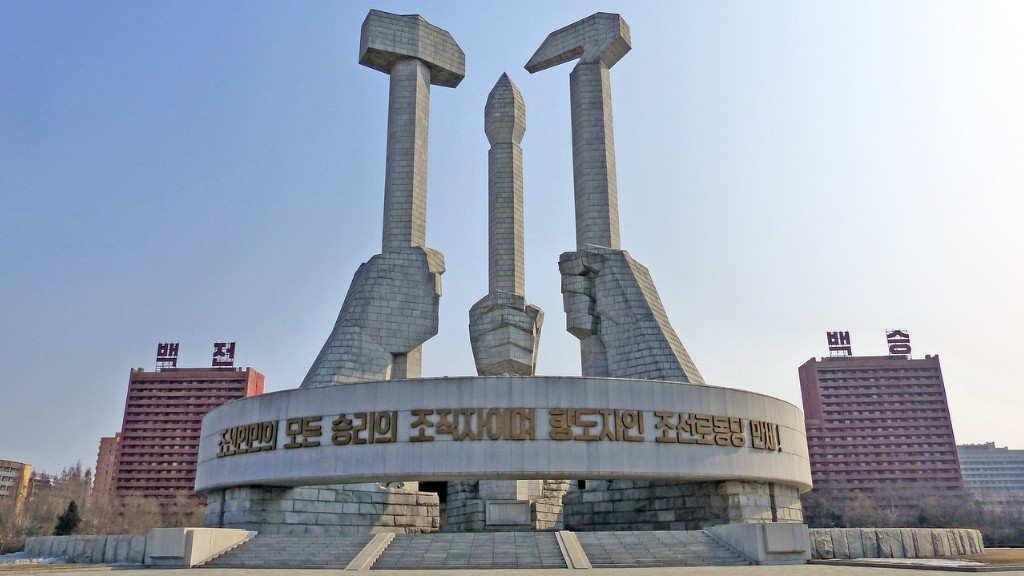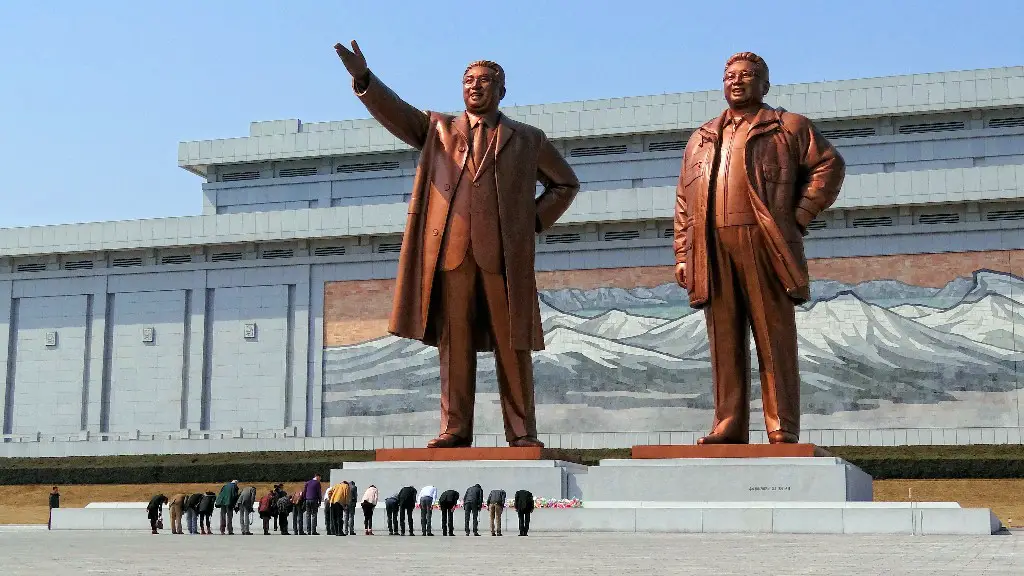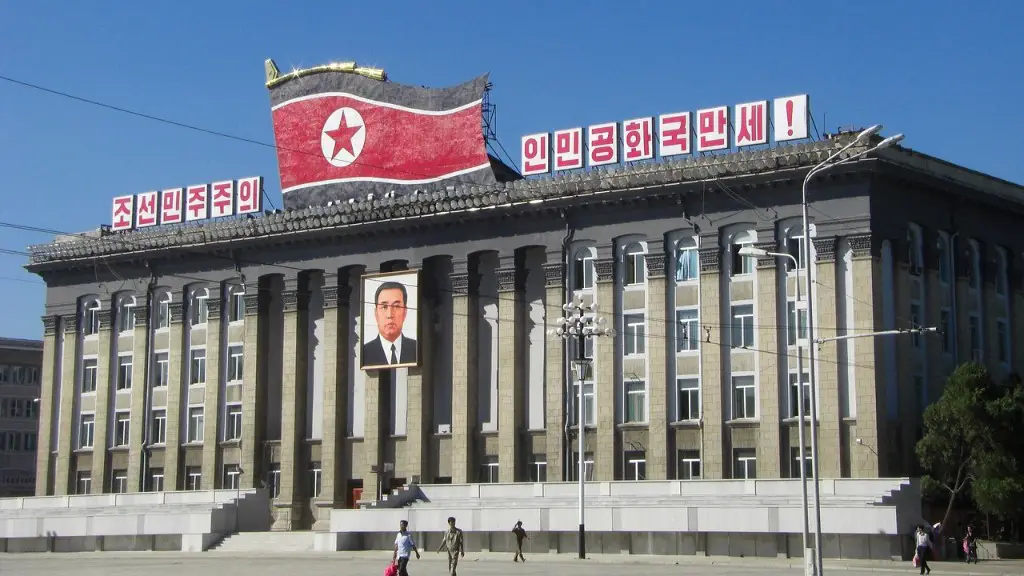Background Information
North Korea is a closed country, isolated from much of the world for decades. It is one of the most repressive regimes in the world, combining a Stalinist political system with macabre human rights abuses and a belligerent nuclear policy. Throughout history, the country has been shrouded in mystery, with the outside world able to glean only limited information about the secretive nation. However, over the past few years, there have been growing signs that the country may be slowly changing its ways.
Economic Reforms
Since leader Kim Jong-un came to power in 2011, economic reforms have been implemented, with a focus on stimulating the economy. Some of the reforms have seen a liberalization of the country’s economy and greater incentives for private investment. The government has also allowed foreign investment into the country, something which was previously unheard of in North Korea.
Under the new reforms, the country has seen a significant growth in tourism, with visitors from around the world flocking to the country in search of its unique culture and history. This has seen a surge in the country’s foreign exchange reserves, allowing the government to pay for much-needed imports of technology and food.
Difficulties and Challenges
Whilst the country has seen some economic growth, it faces considerable difficulties and challenges. Trade sanctions have been imposed by the United Nations Security Council in a bid to prevent the country from developing nuclear weapons. These sanctions have seen a significant decline in the country’s economic output and a huge drop in the standard of living for many North Koreans.
The sanctions have also had an impact on access to food and healthcare, with many North Koreans surviving on just a few hundred calories per day. Diseases such as tuberculosis and malnutrition are rife in the country, with estimates that around three-quarters of North Korean children suffer from stunted growth.
The country is also faced with significant environmental challenges due to deforestation and the effects of climate change. The country remains largely reliant on coal-fired power plants, making it one of the world’s most heavily polluted countries.
Leadership Changes
In 2017, leadership in the country saw a dramatic shift, with Kim Jong-un taking a more relaxed approach to foreign relations and showing a willingness to talk with the United States on nuclear disarmament. This resulted in a historic summit between the two countries in 2018, with a promise of further dialogue.
The shift in leadership has also seen a softening of the country’s stance on the traditional enemies of South Korea and the United States. This has resulted in a thawing of tensions between the two sides, with North and South Korea even taking steps to reconnect the countries after being divided for more than sixty years.
Perspectives From Experts
Experts have cautiously welcomed the recent developments, though there is still considerable caution about the situation. Many experts are not convinced the North Korean regime will be willing to make the required changes, noting the significant amount of evidence that suggests it may still be pursuing its nuclear ambitions.
The situation is further complicated by the lack of reliable information coming out of North Korea. There are still strict limits on contact with the outside world, meaning that tracking the situation inside the country remains a challenge.
Despite the complexities and difficulties, there is a genuine belief that the situation is slowly improving and that there is reason to cautiously hope that North Korea may slowly be changing its ways.
United Nations Sanctions
The United Nations Security Council has imposed a range of sanctions on the country in a bid to enforce the terms of the nuclear disarmament agreements. These sanctions target the country’s arms and nuclear programs, as well as its financial and trade activities.
The sanctions have had a significant impact on North Korea’s economy and have rendered the country under significant pressure to comply with the terms of the agreements. The sanctions have also had a significant impact on the country’s ability to pay for imports, with food and medicine increasingly scarce in many parts of the country.
Attitudes of the People
Attitudes towards North Korea among the international community remain largely negative, with the country’s human rights abuses and nuclear threats causing global concern. However, there are signs that attitudes may be slowly changing.
In recent years, citizens of the country have started to embrace technology and the internet, despite a feeling of deep suspicion and wariness towards the outside world. This has seen the emergence of a new generation, who remain largely loyal to their government, but are also more open to the idea of change.
Impact of International Relations
The thawing of relations between North and South Korea has had a significant impact on the region and has led to talk of a reunification of the two countries. The countries have been discussing joint economic projects and tourist trips, with the hope that these could lead to increased collaboration between the two sides and eventually a reunification.
South Korea has remained largely supportive of the newfound rapprochement, seeing it as an opportunity to improve regional security and bring greater stability to the region. The United States and Japan, have been more reserved in their response, with both countries wary of North Korea’s intentions and fears of a nuclear arms race.
Reaction of the International Community
The reaction of the international community to the recent developments in North Korea has been largely positive, with many believing that the country’s new pragmatism and focus on economic growth could be the basis of a more secure and peaceful future.
Whilst there are still doubts and suspicions about the country’s intentions, there is also a genuine hope that its newfound openness to dialogue could lead to a more positive relationship with the rest of the world.
Analysis
Whilst there are still major hurdles to overcome, it is clear that the recent developments in North Korea have seen a shift in the country’s behavior and approach to international relations. The changes in the country’s leadership have been largely welcomed, with a newfound willingness to talk and engage with the outside world.
Whilst the situation remains fragile, it is clear that there is an increasing belief that North Korea could be slowly changing its ways. This could be hugely beneficial for the region and for the world, hopefully leading to increased stability and reduced tensions.
Implications for the Region
The changes in North Korea have led to speculation about the potential reunification of the two Koreas. This could be hugely beneficial for the region, leading to increased economic prosperity and improved security.
The reunification of the two countries could also lead to a thawing of relations between North and South Korea, as well as improved collaboration with other countries in the region such as China and Japan. This could further reduce tensions and lead to an improved security situation for the entire region.
Impact on International Public Opinion
The changes in North Korea have also seen a shift in international public opinion surrounding the country. Many believe that the country is slowly learning to open up and may be willing to embrace change, though there are still major doubts about the country’s nuclear ambitions.
Public opinion also remains divided on the issue of North Korean reunification. Whilst some argue that it would be a positive development, many fear that the reunification would result in greater instability and endanger regional security.
Strategies for Long-Term Change
It is clear that any lasting change in North Korea is going to need to be approached in a strategic and considered manner, with any change needing a firm and consistent commitment from the ruling elite. This could include a continued dialogue with the outside world, continued economic reforms and a commitment to ensuring human rights are respected and protected.
Ultimately, whether North Korea will be able to change in the long-term remains to be seen. But for the region, and for the world, any hint of change in the secretive state is welcome.



